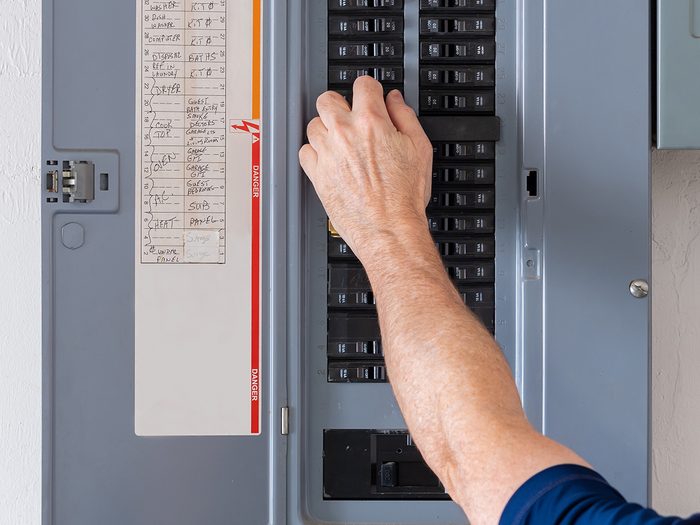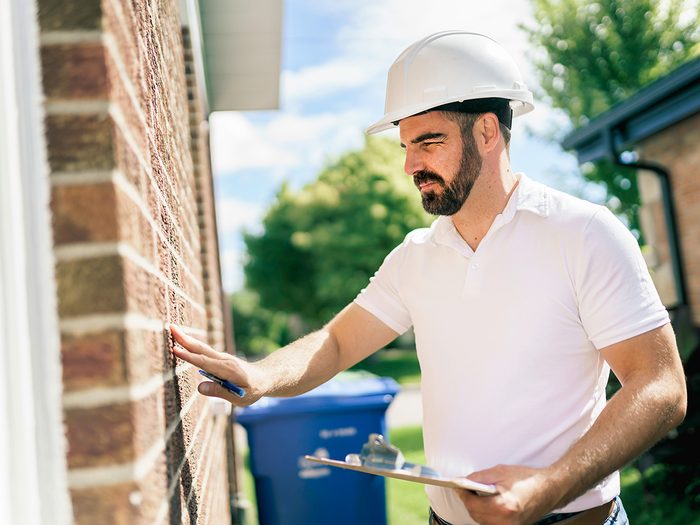
Top tips for house hunting in Canada
Everyone’s dream home is just the right size, in the perfect neighbourhood, with exactly the features and amenities they had in mind. In reality, every home—even a brand-new one—will have flaws. The question is, are they reasonable issues or signs of an impending disaster? Here are the top tips for house hunting every prospective buyer should know.

Know Your Budget
Defining a job as “manageable” often comes down to a buyer’s budget; just because a problem is standard doesn’t mean you can afford to fix it right away. “It’s common for a house to need a new roof or siding. The roof is more critical because it keeps the weather out, while the siding is more of a cosmetic issue,” says Blaine Swan, owner of Goodeye Inspections in Truro, N.S. Asphalt-shingle roofs last about 25 years, and replacing one starts at $5,000, with costs rising according to roof area.
These money mistakes could be costing you thousands.

Don’t sweat the small stuff
Some issues are smaller than they appear. Mark Benerowski, who owns The Inspection Consultant Inc. in Toronto, says first-time buyers are often disappointed when, during the preclosing inspection, a brand-new home in a housing development doesn’t look exactly like the model suite they had seen. He’ll remind them that many minor problems—like an imperfect finish on a staircase—are covered by a provincially regulated new-homes warranty and easily fixed within 30 days of their move-in.
Here are 13 secrets real estate agents want you to know.

Put safety first
One of the top tips for house hunting is this: Anything that could be a safety issue is worth looking into. Investigating a home’s electrical system, for example, is crucial. Insurance companies don’t like knob-and-tube wiring (found in homes dating back about 50 years), which they label a fire hazard. The system must often be upgraded within 30 days of closing in order to get insurance, and it’s a messy job that starts at about $5,000 per storey. Also problematic are homes from six or more decades ago that have only 60-amp electrical service, which isn’t enough to support today’s appliances. “That means new masks, new wiring and a new electrical meter and panel,” says Swan. “It can get very expensive.”
Electricians always do these things in their own homes.

Check the water system
Water is another key component that merits a thorough check. After making sure the basic functions of their taps and toilet work, buyers should get documents from the seller that prove the water system is legal and has been inspected, and that all renovations have been done with a permit. Otherwise, their home insurance won’t cover anything that goes wrong with those renos. “The Okanagan’s outlying areas have a lot of wells and septic tanks. You have to ensure a good water system,” says Craig Hostland, an inspector in Kelowna, B.C., for Pillar to Post Home Inspectors.

Look out for mould
Another one of the most important top tips for house hunting? Watch for evidence of mould in a prospective purchase, especially if you live in British Columbia. “The No. 1 issue in Okanagan real estate for the past 10 years has been grow ops,” says Hostland. “It can cost $30,000, $50,000 or more to rehabilitate a home.” Mould-which can also be caused by flooding and leaks-can affect air quality and cause respiratory problems. Even after a former grow op is brought back up to bylaw standards, homeowners need to make sure they have papers to prove it. Otherwise, when it comes time, reselling will be a major headache.
Mould and many other more serious problems, such as asbestos, aren’t technically covered by a home inspector’s mandate or insurance. An experienced inspector will share his suspicions, then pass clients on to an expert to confirm those suspicions and suggest options. A savvy real estate agent might be able to negotiate with the seller to have the cost of a mould inspection subtracted from the purchase price.
You might also want to look out for this bacterium that looks like pink slime.

Ensure a sturdy foundation
Foundation settlement is also a danger. Caused by extreme moisture changes, weak soil or poor drainage, it results in wall cracks that threaten the house’s structural integrity. Homes can end up needing extensive foundation upgrades to repair. “It can cost hundreds of thousands of dollars to fix,” says Benerowski, pointing to Toronto’s High Park neighbourhood, where soil settlement due to underground streams can make already pricey homes staggeringly expensive.
These tips will help you get the most out of your home inspection.

Take the necessary steps
Once you’ve found the home of your dreams, follow these steps to make it yours:
- Get pre-approved for a mortgage. Remember: you-not your mortgage broker-know your budget best. Don’t forget about closing costs, legal fees, property taxes and insurance.
- Choose an agent. Pick someone patient and friendly who is a good negotiator and an expert on the neighbourhoods you like.
- Start the hunt. Have a list of needs, wants and deal breakers, and check it frequently. It’s easy to be swayed by renovations or pretty landscaping.
- Make an offer. Your agent will refer to recent sales of comparable homes to help you decide how much to offer. This is an emotional process, so keep your budget in mind during negotiations or bidding wars.
- Be diligent. The offer to purchase should include a condition giving you enough time to have a home inspection and let your lender confirm the value of the house.
- Seal the deal. By closing day, your lawyer or notary will have made sure the seller is permitted to hand off the house. At the final signing, she’ll transfer over your down payment. Your mortgage is finalized, and you get the keys. Congratulations!
Now that you’ve brushed up on the top tips for house hunting, check out these expert money-saving strategies.